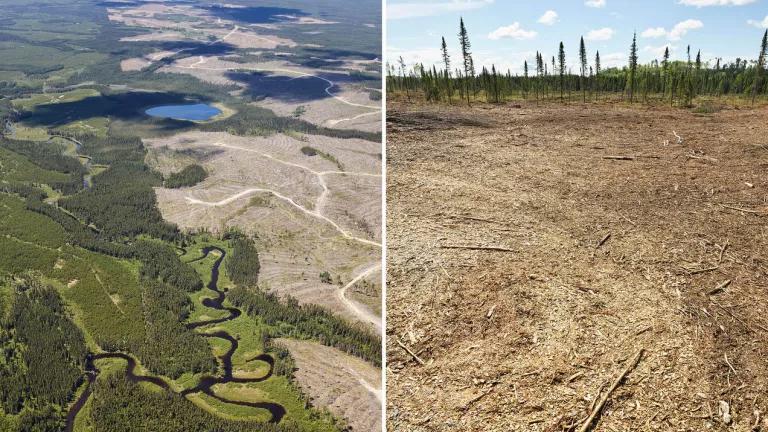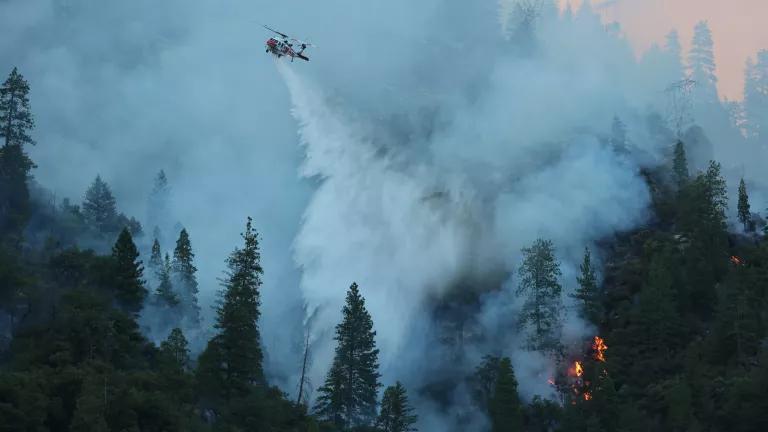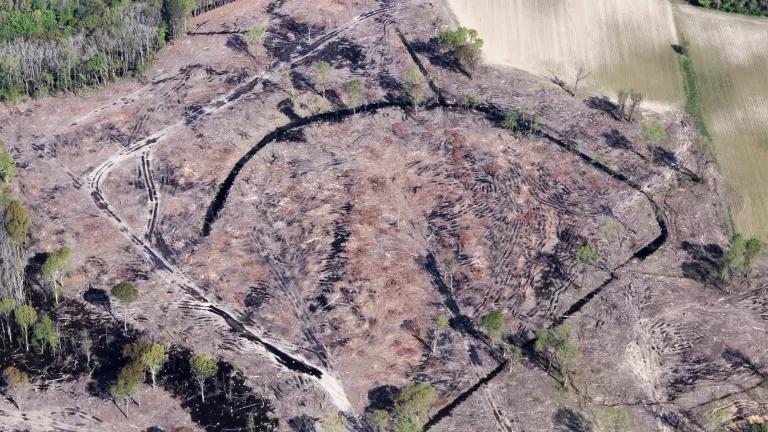U.N. Biodiversity Report: A Million Reasons to Better Protect Our Natural Systems

Gulshan Khan/AFP via Getty Images
Human civilization is under threat. We must save nature in order to address this emergency.
This is a rough moment to read or listen to environmental news. As we’re experiencing a seemingly unending parade of rollbacks and pro-polluter actions coming out of D.C., the international science community is ringing the alarm bell on a series of issues that need attention—now. Most notably, last year’s IPCC climate report made clear that action needs to happen fast if we are going to stave off the worst impacts of climate change.
That report was scary. Now there’s a new scientific assessment of global ecosystems on the verge of collapse—and it’s downright horrific.
The United Nations’ Global Assessment Report on Biodiversity and Ecosystem Services reflects the scientific expertise of 150 biodiversity experts from 50 countries on behalf of the Intergovernmental Science–Policy Platform on Biodiversity and Ecosystem Services (IPBES). The report is organized around four key messages:
- Nature underpins and sustains quality of life, but its contributions to people are deteriorating worldwide.
- The issues and practices pushing us toward natural collapse have accelerated during the past 50 years. For example, over the past 30 years, global trade has increased eightfold.
- Short-term goals for protecting nature and achieving sustainability cannot be met by current trajectories, but goals for 2030, 2050, and beyond can be achieved through transformative change, which means a fundamental, system-wide reorganization across technological, economic, and social factors, including paradigms, goals, and values.
- Nature can be conserved, restored, and used sustainably while simultaneously meeting other global societal goals through proven solutions and transformative change.
In short, the report says we need to protect nature—or nature is going to stop protecting us in some very frightening ways: disappearance of species we care about and rely on, like pollinators and freshwater fish; decline in agricultural yields due to severely damaged soil; eradication of forest ecosystems, along with all the carbon storage and wildlife home benefits they bring; and elimination of freshwater streams that provide drinking water for our survival.
As this report makes clear, our international framework for protecting nature is not enough: “The negative trends in nature and its contributions to people are projected to continue to 2050 and beyond in all scenarios except those that include transformative change, due to the projected impact of increasing land-use change, exploitation of organisms, and climate change.”

Kyodo News via Getty Images
It is hard not to read the assessment and just curl up in a ball. Like climate change, these issues seem huge.
But the reality is that there are solutions. And many are not new. This report just makes it more urgent for us to do things that we have known were needed for quite some time and push the envelope on some new ideas.
Taking the steps necessary to reverse the degradation of our natural world will not be easy, but there is a clear path. We must prioritize nature for itself and as the system that nurtures us and our children into future generations. We must set aside vast areas of land, waters, and ocean from industrial development; we must adopt new laws and invent new mechanisms that elevate the needs of nature; and we must be bold in using existing tools to maximize protections for nature.
Protect vast areas of land and ocean.
We must expand the current network of land-based protected areas and marine protected areas, particularly in the context of climate change. Earlier this year, NRDC joined some of the world’s biggest and most respected conservation groups to call for 30 percent of the world’s lands and oceans to be made protected areas by 2030. And we need to stop doing wasteful things like chopping down the boreal forest in Canada for toilet paper, or the great forests of the American Southeast for exported wood pellets dirtying up the energy sector in other countries while worsening the environment in our own. The report makes clear these sorts of actions are even more necessary than we thought.
Sustainably feed the world.
We must do a better job at land-use planning and managing crop and livestock production and consumption. We must implement ecosystem-based fisheries management and spatial planning—including the expansion of marine protected areas—in a manner that addresses ocean stress from climate change, pollution, and acidification. We also need to get far more serious about restorative agricultural practices that address the health of soils that our farms are utterly reliant upon.
Safeguard freshwater.
To maintain adequate access to clean, fresh water, which is suffering from climate change, pollution, and demand, we must improve efficiency, increase storage capacity, improve water quality, and minimize the disruption of our natural water systems. We need to ensure that existing wetlands and source waters are protected by strong national laws, minimize pollution and nutrient flows into our waters by farming in ways that protect soil and minimize fertilizer use, and ensure that our rivers have enough water flowing through them to maintain healthy fish and wildlife populations.
Disrupt current patterns of consumption and waste.
Simply put, we must reduce wasteful consumption.
Many of the tools to fix our global problems are there. We can address this global crisis by taking these aforementioned steps and building them out with new, bold initiatives. I hope the IPBES’ assessment will be the signal we all need to start taking aggressive action. Rather than curl up in a ball in fear, I prefer to visualize the better, brighter, fairer, safer, more lovely world that will result from taking the actions necessary.
NRDC is ready to step up. Are you?



